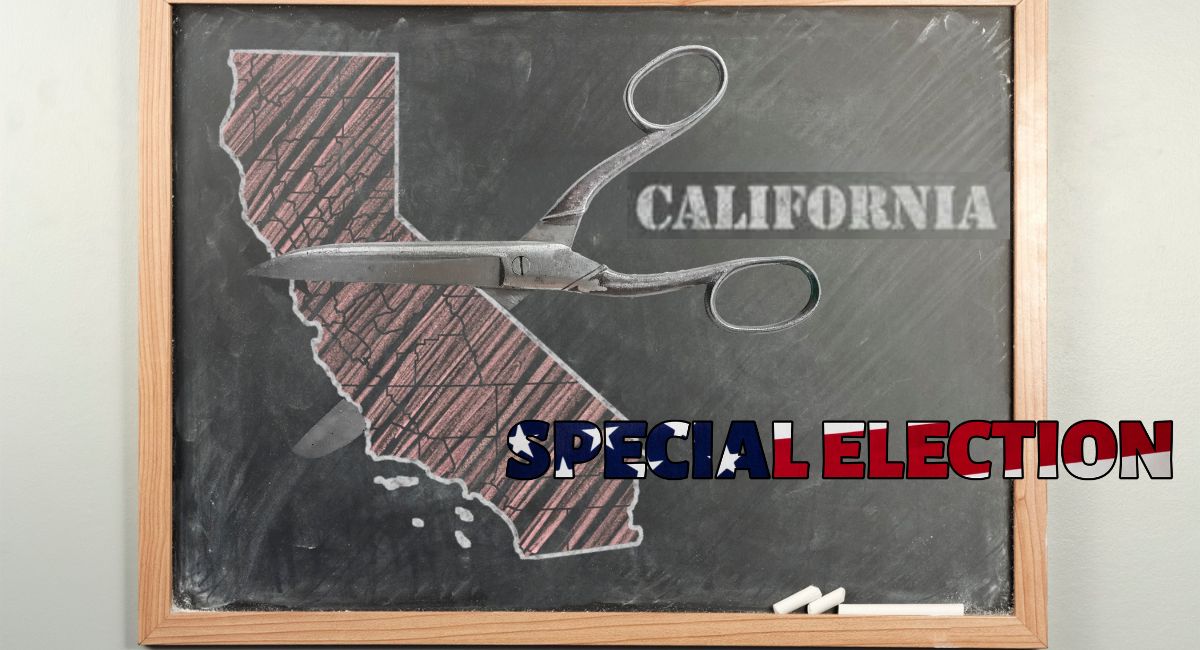As communities of color brace for voter suppression nationwide, a critical special election in California could reshape congressional maps and democratic power.
Magazine, The Immigrant Experience
California’s Prop 50 special election could reshape congressional maps in response to national gerrymandering. Here’s what it means for representation and democracy.
Ethnic media reporters from across California tuned into a briefing that felt more like a civic call to arms than a standard press conference. Organized by American Community Media (ACOM) and co-sponsored by California Common Cause, the session brought together voting rights experts and grassroots journalists to confront a defining question: What kind of democracy will survive the redistricting battles ahead?
Sandy Close, the longtime director of ACOM, set the tone with quiet urgency. “This isn’t just about maps. It’s about whether our communities—especially immigrant, Black, Latino, and Asian communities—will have a say in the policies that shape their lives,” she said.
At the heart of the discussion was Proposition 50, a new ballot measure up for vote in California’s November 4, 2025, special election. If passed, it would redraw the state’s congressional districts in direct response to aggressive gerrymandering efforts unfolding in states like Texas, Missouri, and Florida. In a political moment marked by coordinated assaults on voting rights, Prop 50 represents California’s counterpunch.
Democracy on the Line
Darius Kemp, Executive Director of California Common Cause, didn’t mince words. “Redistricting is not just lines on a map. It’s about fair votes, fair representation, and a fair future,” he told attendees. His organization, dubbed “the people’s lobby,” has been a decades-long leader in voting rights and electoral fairness. It helped end partisan gerrymandering in California by championing the state’s Citizens Redistricting Commission—often held up as a national model.
Now, with Prop 50, Kemp says the stakes have escalated. The measure is a direct response to former President Trump’s demand that Texas redraw its districts to favor Republicans—a move echoed in several GOP-led states. Prop 50, by contrast, aims to safeguard proportional representation in California until the 2030 census.
“This is a democracy stress test,” said Dan Vicuna, Senior Policy Director for Voting and Fair Representation at Common Cause. “Either voters remain the ultimate check on power, or politicians manipulate the rules to make themselves untouchable.”
The National Backdrop
Vicuna provided the sobering national context. States like Missouri and Kansas have already moved to redraw congressional maps mid-decade, threatening to dismantle districts historically represented by leaders of color. In Florida, Indiana, and North Carolina, similar efforts are brewing—often targeting coalition districts where immigrant and minority voters hold sway.
He pointed to the Louisiana v. Calcasieu case, recently heard by the U.S. Supreme Court, as a potential watershed. The case challenges whether race can be considered at all in drawing district lines—a decision that could unravel decades of civil rights protections under Section 2 of the Voting Rights Act.
“If this decision goes the wrong way, we could see a complete wipeout of Black, Latino, and Asian representation across local and national offices,” Vicuna warned.
What Prop 50 Actually Does
Brittany Stonesipher, Voting Rights and Redistricting Program Manager for California Common Cause, laid out the practical details. If passed, Prop 50 would enact a new congressional map to be used from 2026 to 2030, targeting five key districts currently held by Republicans. It’s a temporary measure—the state’s independent Citizens Redistricting Commission would resume authority after the 2030 Census.
Common Cause is not opposing the measure, Stonesipher emphasized. The organization evaluated it against strict fairness criteria: racial equity, public participation, proportional response to national threats, and a firm sunset clause.
“This is not about one party’s power—it’s about restoring balance and accountability in a rapidly shifting electoral landscape,” she said.
Communities Left Out
Perhaps the most sobering insight came when Stonesipher addressed California’s persistent voter turnout disparities. Despite its diversity, the state’s electorate remains disproportionately white, older, and wealthier. Latino voters make up 35% of the adult population but only 21% of likely voters. Asian Americans account for 15% of adults but just 14% of likely voters.
Special elections tend to worsen these gaps.
“That’s why our election protection work is so critical,” Stonesipher said. From hotline support in 10 languages to poll monitors in Southern California, Common Cause is mobilizing to ensure every eligible voter can cast a ballot—especially those in immigrant and low-income communities.
She reminded attendees that no voter in California needs to show ID at the polls, and same-day registration is available up to and on Election Day. Ballots mailed by Halloween will be counted, and in-person voting sites will be open statewide.
From Local Lines to National Ripples
California isn’t alone in this fight. As Vicuna noted, the struggle over congressional lines is playing out nationally, with implications for healthcare, jobs, education, and immigrant justice. Prop 50 may be California’s line in the sand, but it’s also a mirror reflecting deeper democratic fractures.
During the Q&A, ethnic media reporters asked what many Californians are wondering: Is this a one-time change or a slippery slope? Vicuna was clear. “The legislation mandates that power return to the independent commission post-2030. Any attempt to extend political control would require another statewide vote.”
In other words, the people still hold the pen.
As the session drew to a close, a final question lingered in the virtual room: Who gets to draw the map of our future? Proposition 50 doesn’t answer that outright—but it offers voters a rare chance to hold the pen, if only for a moment.
#Prop50 #Redistricting #CaliforniaVotes #EthnicMedia #ImmigrantVoices #VotingRights #ACOMBriefing #CommonCause

